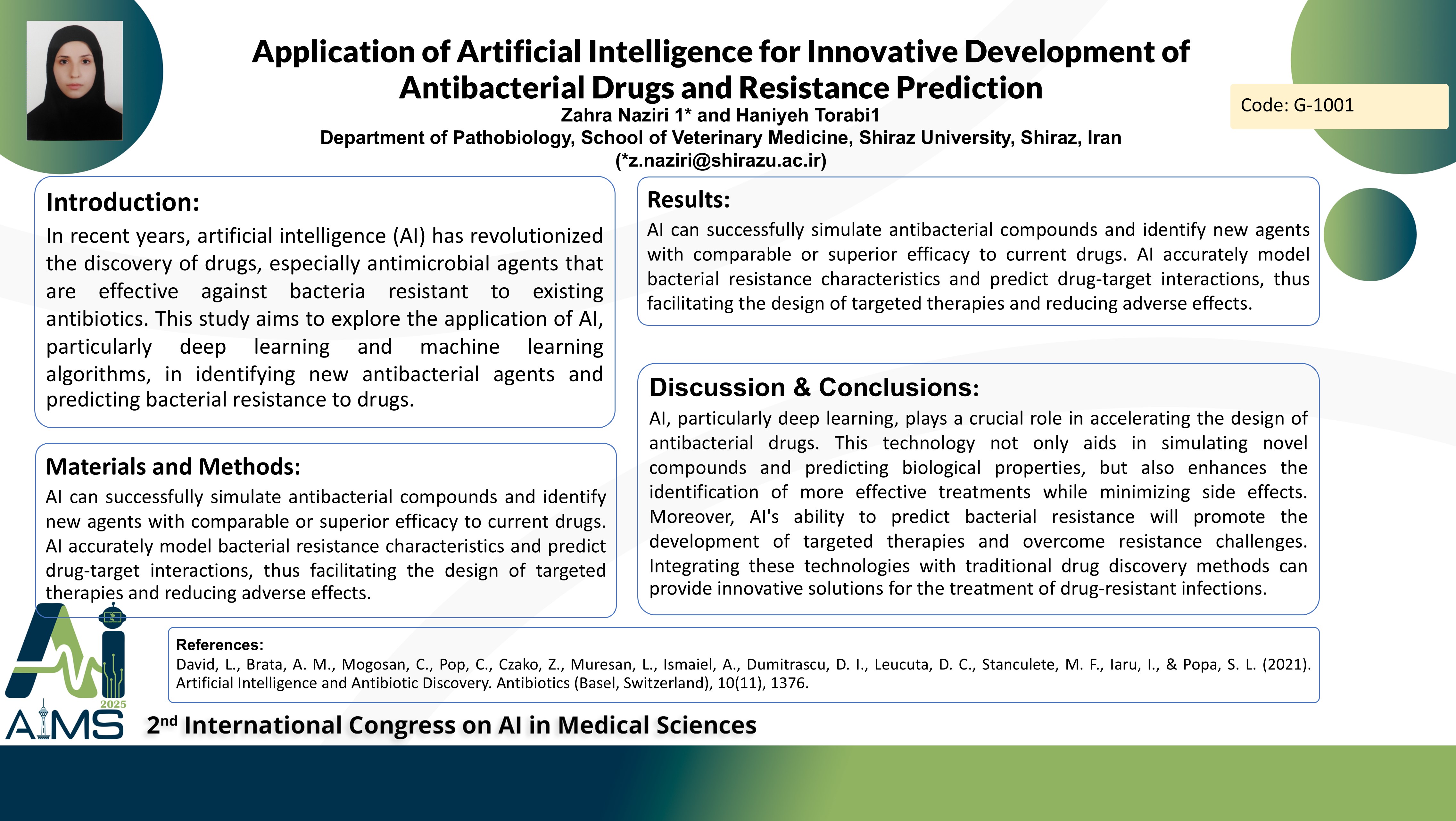Application of Artificial Intelligence for Innovative Development of Antibacterial Drugs and Resistance Prediction
Code: G-1369
Authors: Zahra Naziri *, Haniyeh Torabi ℗
Schedule: Not Scheduled!
Tag: Drug Discovery
Download: Download Poster
Abstract:
Abstract
Background and aims: In recent years, artificial intelligence (AI) has revolutionized the discovery of drugs, especially antimicrobial agents that are effective against bacteria resistant to existing antibiotics. This study aims to explore the application of AI, particularly deep learning and machine learning algorithms, in identifying new antibacterial agents and predicting bacterial resistance to drugs. Method: Data related to the molecular structures of antibacterial compounds and bacterial resistance are collected and analyzed using machine learning and deep learning algorithms. Deep neural networks are used to recognize patterns and predict biological properties such as antibacterial activity and drug toxicity. Additionally, molecular dynamics simulations and laboratory experiments are performed to verify the effects of the predicted compounds. Results: AI can successfully simulate antibacterial compounds and identify new agents with comparable or superior efficacy to current drugs. AI accurately model bacterial resistance characteristics and predict drug-target interactions, thus facilitating the design of targeted therapies and reducing adverse effects. Conclusion: AI, particularly deep learning, plays a crucial role in accelerating the design of antibacterial drugs. This technology not only aids in simulating novel compounds and predicting biological properties, but also enhances the identification of more effective treatments while minimizing side effects. Moreover, AI's ability to predict bacterial resistance will promote the development of targeted therapies and overcome resistance challenges. Integrating these technologies with traditional drug discovery methods can provide innovative solutions for the treatment of drug-resistant infections.
Keywords
Artificial Intelligence, Medicine, Drug Design
